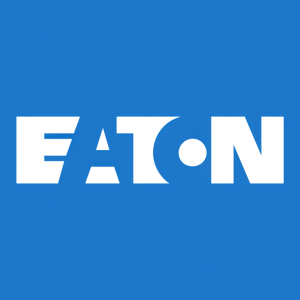Turning the Tide: Data Centers' Energy Transition to Sustainability Powerhouses
- None.
- None.
NORTHAMPTON, MA / ACCESSWIRE / March 22, 2024 / Eaton:

Karina Rigby, president, Critical Systems, Electrical Sector, EMEA, Eaton
Data centers have an eco-unfriendly reputation, but they will actually be powerhouses for change in the race to a more sustainable future. Read on to see how they're helping to enable a new power paradigm built on clean energy-and how we're supporting them at Eaton.
Written by Dr Karina Rigby, 03/04/2024
Amid the push to net zero, data centers are coming under increasing scrutiny. With a reputation as energy devouring carbon culprits, these facilities are firmly in the sights of environmental groups and governments-but they actually have a vital role to play in the green revolution.
The World Economic Forum suggests that around
However, while data centers are vital to economic prosperity, they are also often regarded as digitalization's dirty secret. Headlines claiming data centers out-pollute airlines are easy to find, causing many leaders to worry about the dramatic rise in their numbers. But is this eco-unfriendly reputation fair?
Accounting for about
From our customer conversations, sustainability is now one of the core imperatives for data center operators alongside speed and cost. We have a broad range of products and services that are supporting this push, for example optimizing energy efficiency or enabling local renewable generation.
Emerging technology trends will only accelerate this process-for instance, switching to hydrogen rather than diesel for back up power, or enabling more efficient cooling. Over the coming years, these innovations will further drive down data center costs, energy consumption and carbon emissions.
Yet, such greener operations are just the beginning of the data center sustainability journey. Our market position puts us in the ideal place to survey the energy ecosystem as a whole, and it's increasingly clear that a symbiotic relationship is emerging between data centers, utilities and grid operators that will be good for everyone.
It's increasingly clear that a symbiotic relationship is emerging between data centers, utilities and grid operators that will be good for everyone.
Karina Rigby, president, Critical Systems, Electrical Sector, EMEA
The rise of energy prosumers
The olden days of top-down power generation, transmission and distribution are gone. Grids are becoming extremely complex and now demand much more flexibility and intelligence. Electricity no longer just flows one-way to assets hanging on the grid, but back and forth in a much more decentralized ecosystem.
As utilities bring more and more renewable generation online-potentially meeting around
The answer lies in greater demand-side flexibility driven by a new breed of energy prosumers-entities with the ability to generate and store power locally, then feed it back into the grid. Data centers are uniquely positioned to benefit from this trend, because each facility already has an uninterruptible power supply (UPS) that ensures normal operations can continue in the event of an electricity outage. With the right infrastructure and intelligent management capabilities, these battery backup systems can return energy to the grid to help balance demand and enable vital flexibility for the renewable revolution.
For utilities and grid operators, this two-way power flow with energy prosumers helps to address flexibility challenges while also providing a route to harness more renewables. Equally, data center operators, who already prioritize the best grid access, can monetize otherwise underused assets, create new revenue streams, and strengthen their net zero credentials.
Awareness of this symbiotic win-win is growing fast. We're proud to be enabling customers from all sides to embrace it, helping energy consumers become energy prosumers through our medium and low voltage solutions, battery technology, digital grid balancing capabilities, consulting services, and more. For instance, we're already working with major hyperscale and colocation data center players to enable grid stabilization through their UPS systems with our EnergyAware solution.
Expecting utilities or governments to build out huge amounts of back-up power generation to balance the grid isn't financially feasible.
Karina Rigby, president, Critical Systems, Electrical Sector, EMEA
Nurturing a new energy ecosystem
From our conversations with customers and partners on the ground, it's clear that a combination of powerful trends is driving the development of a new energy ecosystem where data centers will play an important role.
The rapid growth of digitalization, the energy transition to renewables, data center sustainability improvements, the rising complexity of grids, and the need for intelligent power management-all of these trends are moving at slightly different speeds, but they are all going in the same direction.
The economic case is strong. The sustainability argument is compelling. And the necessary technologies are coming online. The key challenge is now one of culture. Grid operators and data center energy prosumers need to align in their thinking-and that is steadily happening with more and more organizations trying to understand how they can support a net-zero playing field.
Government has an important role to play here in setting the right policy framework and financial incentives to drive cultural change. Demand-side players weren't previously involved in the grid, so policymakers need to incentivize data center operators to sell flexibility services. That means building the business case, clarifying the current rules, and making participation easier with advances like smart billing. Legislation like REPowerEU is a good step, helping different market players come together to fast forward the clean energy revolution.
Now is the time for everyone in this ecosystem to move things forward by collaborating, breaking down siloes, learning, and sharing best practices. Most importantly, we need to advance the conversation about the environmental impact of data centers and shake off their high-carbon reputation. Data centers aren't holding back a sustainable future-in fact, they're helping us get there faster.
View additional multimedia and more ESG storytelling from Eaton on 3blmedia.com.
Contact Info:
Spokesperson: Eaton
Website: https://www.3blmedia.com/profiles/eaton
Email: info@3blmedia.com
SOURCE: Eaton
View the original press release on accesswire.com







